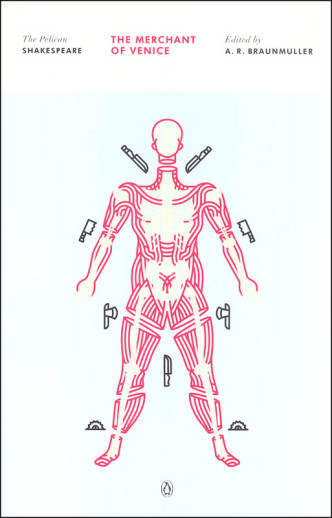We use cookies to make your experience better. To comply with the new e-Privacy directive, we need to ask for your consent to set the cookies. Learn more.
Merchant of Venice (Penguin Classic)
This edition is slightly edited with an introduction by A.R. Braunmuller,includes notes describing unfamiliar terms beneath the text; 104 pgs, pb.
The acclaimed Pelican Shakespeare series edited by A. R. Braunmuller and Stephen Orgel
The legendary Pelican Shakespeare series features authoritative and meticulously researched texts paired with scholarship by renowned Shakespeareans. Each book includes an essay on the theatrical world of Shakespeare's time, an introduction to the individual play, and a detailed note on the text used. Updated by general editors Stephen Orgel and A. R. Braunmuller, these easy-to-read editions incorporate over thirty years of Shakespeare scholarship undertaken since the original series, edited by Alfred Harbage, appeared between 1956 and 1967. With definitive texts and illuminating essays, the Pelican Shakespeare will remain a valued resource for students, teachers, and theater professionals for many years to come.
For more than seventy years, Penguin has been the leading publisher of classic literature in the English-speaking world. With more than 1,700 titles, Penguin Classics represents a global bookshelf of the best works throughout history and across genres and disciplines. Readers trust the series to provide authoritative texts enhanced by introductions and notes by distinguished scholars and contemporary authors, as well as up-to-date translations by award-winning translators.
When Bassanio desires to court the wealthy heiress Portia, he asks his merchant friend Antonio for a loan so that he may do so in style. As Antonio's money is tied up in this own ventures, he is not able to provide the loan and suggest that they secure a loan from the moneylender Shylock. Shylock agrees on the loan despite a long-standing grudge against his nemesis Antonio, but on a condition that may very well cost Antonio his life if the loan defaults. This powerful play by Shakespeare captures the drama and suspense surrounding the Merchant of Venice.

